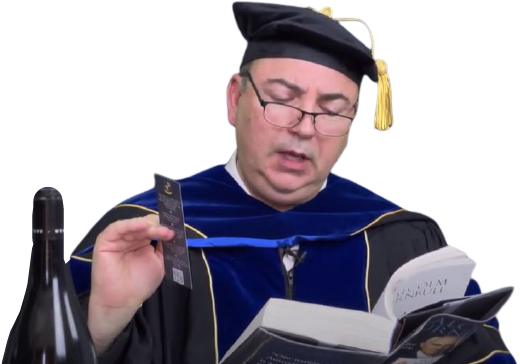
I have been drawn out of my sabbatical to comment on the Flinders University decision to close Southgate Institute, by a number of academics and students in South Australia.
It is not my place to meddle in the affairs of other tertiary institutions. However, on this occasion, there is much angst and anger, so I feel it is my duty to turn to our MBA Thinking roots and analyse this in an impartial, MBA theory-led way.
As a result, I fear I will please few people on my exploration of perspective and truth.
Nominative Determinism, Professor Fran Baum, and the clear-felled forest of academics
The person at the centre of this move, is Order of Australia recipient, Professor Fran Baum AO, who not only runs the Southgate Institute but has also been responsible for attracting and winning astounding levels of grant money over the years.
In this move, the decision to close the Southgate Institute for Health, Society, and Equity, will result in Professor Baum leaving Flinders University, which has shocked everybody except for nominative determinists. Nominative Determinists believe that we are drawn to careers and life outcomes in harmony with our surnames.
One of our adjunct professors, Peg L’Abel, who is a part time nominative determinist, predicted back in 2018 that Professor Fran Baum (whose surname means “tree”) was sealing her own fate after exclaiming in a Flinders University governing council meeting that “the rich forest that was the Flinders academic community [was being] clear-felled” by the unpopular restructure that was being discussed at the time.
So, here we are today, mourning the (hopefully temporary) “felling” of an academic’s career at the zenith of her game, even though we could have seen this coming some years earlier.
When I spoke to Professor L’Abel this morning, she further pointed out that when you clear a forest, you are left with a bare surface of rocks, which is why she completely understood that the university chose as its spokesperson on the matter none other than the executive dean of its College of Medicine and Public Health, Professor Jonathan Craig, whose surname means “rock”.
When is cost-cutting not cost-cutting? When it’s a restructure
Another aspect of this issue that has people very upset, is the perceived “doublespeak” of the university when it claims the abolition of the Institute and “dis-establishment” of four senior roles will not save money when, many argue, it will.
This is where our MBA Thinking is needed; to slice through the emotional layers and get to the cold, hard facts. But this doesn’t mean we only need to draw upon conventional MBA sources. No. I believe MBA Thinking emboldens us to draw from any disciplines or sources that will get the job done.
For starters, it is easy to compare the university’s plan to take resources from the Institute and scatter them broadly throughout the rest of the discipline, as akin to the cottagers in Aesop’s The Goose That Laid The Golden Egg being tempted to slice open the goose to get to the gold.
But that would be an unfair reading because those cottagers were driven by greed, whereas the university has said publicly that all it wants to do is shred the Institute so that it can share its golden bounty of research and education activities farther and wider.
Given that the Southgate Institute already had global reach, then this means the university clearly has its eyes on Mars and other domains not yet privy to Baum and Co’s insightful work.
How could anybody fault this because the school’s new discipline of Population Health must surely apply wherever human populations go and soon that will include outer space.
One might argue this is one small restructure for the university, one giant restructure for humankind.
Yes, Virginia, social justice does belong within a university
Another recurring theme in this event, is how some people say the dis-establishment of four senior roles, replacing them with early-to-mid career positions, is a sign that social justice is no longer part of the Flinders University ethos.
But is this really so?
My readers will be well aware of the Penrose Effect, based on the Penrose Hypothesis, which states that, in general, managerial resources grow at a rate faster than a firm and ultimately yield diminishing returns.
Here, our economics tutor, Professor Tally Numberworth, says Flinders has found a social justice-forward way of diminishing the Penrose Effect.
He points out that by replacing four expensive managers with six affordable “juniors”, the university has tipped its hat to social justice (two of the new position holders will be academics identifying as Aboriginal and/or Torres Strait Islander, and one of them will be its leader), won respect from economists (lower overheads gives more breathing space before the Penrose Effect bites again), and impressed students of Machiavellian strategy (there are high, noble horses ready to mount on any side of this issue).
Further, from a social justice perspective, removing four senior leaders who kept meeting and exceeding performance measures, has potential for making a positive impact on other staff. For example, subordinates working under leaders who are world renowned and exemplary on every measure are often overwhelmed and at risk of depression. Our part-time casual HR lecturer, Associate Prof Clark Breadwinner, argues this can lead to subordinates suffering chronic mental and physical health issues, which would ironically undermine the mission and values of the Southgate Institute and its ilk.
Amid the criticism of these changes, one that has been widely applauded is the decision that one of the new appointees identifying as Aboriginal or Torres Strait Islander, will be appointed as leader. There are many good reasons for this decision, but what happens if nobody of that identity applies?
My MBA Thinking says this is a sound opportunity for Flinders University to show it is “of the people” and that its new taste for “dis-establishing” lofty management positions can flow further on two fronts:
- Without an appointed leader, the university can put these unexpected and unwanted cost savings into a time allowance for staff to take time out daily to run the new Population Health discipline as an anarcho-syndicalist commune in which each worker will act as a sort of executive-officer-for-the-week, but all the decisions of that officer will have to be ratified at a special bi-weekly meeting during work hours, by a simple majority, in the case of purely internal affairs and by a two-thirds majority in the case of more major decisions.
- This would give the governing council a precedent for making similar changes throughout the university, such as acting quickly to replace the chancellor and vice chancellor with junior staff or even interns, at a 3-to-1 or 5-to-1 ratio, which would further enhance diversity due to the sheer fact that a multi-person replacement for one chancellor could comprise backgrounds, beliefs, experiences, and aspirations drawn from three to five lived experiences.
For these reasons alone, Flinders University deserves more credit than it’s getting, especially in the awe-inspiring way it has flamboyantly responded to claims that this is all about cost cutting.
Despite a statement from Southgate Institute staff that this decision will come at a significant reputational cost, the university is clearly showing that in this regard as well, no expense will be spared. If anything, it’s going to spend big in the reputational cost department; that’s bold leadership!
I hope this article has brought some clarity and offered some succour to readers who are, have been, and might soon be affected by this decision and, to that end, I will leave you with this modified quote from Joyce Kilmer’s Trees:


Leave a Reply